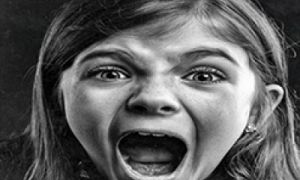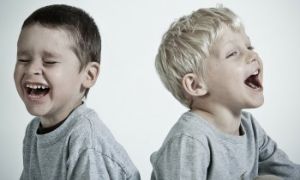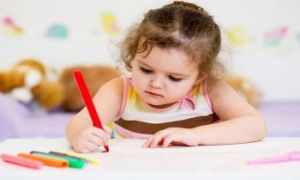

The Baby Growth 1st Year Posters are designed to show the physical milestones a baby reaches during their first year. These can be used as a display in the nursery to coincide with images of real babies achieving milestones throughout their first year. Please remember - This should be used as a general guideline only.
From now, babies begin to identify and respond to their own feelings, understanding other's feelings & needs and interact positively with others. A baby's social and emotional development increases by becoming more aware of other people that are around them and loves the attention they receive.
Babies use of language at this stage changes so much that it's hard to notice all the key changes that occur. By the end of this period a baby has transformed from non-verbal communicator into an active talker.
Babies will begin to find new ways of moving themselves around the house and has improved balance and body movements. These movements that a baby displays are often referred to as gross motor development.
Babies will spend most of their time watching the world around them, taking in information, getting directly involved and often combining both touch and sight which is often referred to as fine motor development.
A baby’s cognitive development at this stage is very rapid and many changes take place over this time. They’re learning new things each day and spend their time observing others to learn how to act. Babies become more curious as they begin to discover their surroundings and begin to engage in a wide variety of experiences.
This article describes what to expect from a New Born Baby, Appearance, Physical Characteristics of a newborn, average weight, head, hair, skin, genitals, umbilical cords, etc.. This guide will prepare all new parents on what to expect when you deliver the baby.
What an exciting time... your baby is finally moving on from milk to solids. This is a crucial stage in your baby's development. From now on, the rapid growth and development of your baby requires more nutrients that milk alone cannot provide. It is also important to remember that starting on solids is an ongoing process where you have to pay special attention to any food allergy symptoms that your baby may present.
It's so exciting to notice your baby's very first tooth coming through. Most babies “grow” their first tooth at around 4 -6 months of age. Sometimes a tooth can appear without any warning signs at all and sometimes you may notice a small bulge on the gum or a red patch on the gum or cheek, followed in a couple of days by a tooth. However some babies can feel great discomfort during teething,they may be grizzly, wake in the night, dribble more than usual or cry during feeding.
 Toddlers have a greater understanding of the world around them by this stage. Their cognitive development (also known as intellectual development and thinking skills) continues… Read More
Toddlers have a greater understanding of the world around them by this stage. Their cognitive development (also known as intellectual development and thinking skills) continues… Read More
 Infants begin to develop trust when parents begin to fulfil their needs. Such as changing an infant's nappy when needed, feeding on request and holding… Read More
Infants begin to develop trust when parents begin to fulfil their needs. Such as changing an infant's nappy when needed, feeding on request and holding… Read More
 Beginning at birth the construction of thought processes, such as memory, problem solving, exploration of objects etc, is an important part of an infant’s cognitive… Read More
Beginning at birth the construction of thought processes, such as memory, problem solving, exploration of objects etc, is an important part of an infant’s cognitive… Read More
 Toddlers want to do more on their own and do not like it when you begin to establish limits on their behaviour. Tantrums can become… Read More
Toddlers want to do more on their own and do not like it when you begin to establish limits on their behaviour. Tantrums can become… Read More
 Your preschooler is now able to focus their attention more accurately and is less influenced by distractions. The intensity of questions increase as your child… Read More
Your preschooler is now able to focus their attention more accurately and is less influenced by distractions. The intensity of questions increase as your child… Read More
 John Dewey is often seen as the proponent of learning by doing – rather than learning by passively receiving. He believed that each child was active,… Read More
John Dewey is often seen as the proponent of learning by doing – rather than learning by passively receiving. He believed that each child was active,… Read More
 Toddler advance and gains new skills in Gross Motor Development milestones achieved throughout earlier years. Co-ordination and challenges that could not be performed before such… Read More
Toddler advance and gains new skills in Gross Motor Development milestones achieved throughout earlier years. Co-ordination and challenges that could not be performed before such… Read More
 Erik Erikson developed a psychosocial theory to understand how we each develop our identities through eight stages of psychosocial development from infancy to adulthood. The… Read More
Erik Erikson developed a psychosocial theory to understand how we each develop our identities through eight stages of psychosocial development from infancy to adulthood. The… Read More
 At this point preschoolers begin to interact effectively with others. Play becomes more innovative and organized and “boyfriend” or “girlfriend” begins to emerge. Preschoolers have… Read More
At this point preschoolers begin to interact effectively with others. Play becomes more innovative and organized and “boyfriend” or “girlfriend” begins to emerge. Preschoolers have… Read More
 From now, babies begin to identify and respond to their own feelings, understanding other's feelings & needs and interact positively with others. A baby's social and… Read More
From now, babies begin to identify and respond to their own feelings, understanding other's feelings & needs and interact positively with others. A baby's social and… Read More

Critical reflection is a powerful tool for understanding and addressing challenging behaviours in young children...
See more...
As Educators, there will be many instances where you will need to write about a...
See more...
The development of writing skills depends on a variety of physiological and environmental factors. Children...
See more...© 2009-2026 Aussie Childcare Network Pty Ltd. All Rights Reserved.

